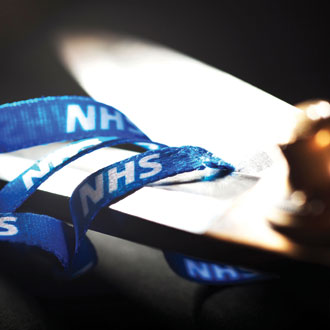Investing in GP core funding would make savings in long-term, finds study

The financial cost of a 10% boost in GP core funding to the NHS would be cancelled out by savings on secondary care, a study by GP academics has shown.
The researchers found the 10% funding hike would cost the NHS around £7,600 per 1,000 registered patients, but would be offset by savings of £6,400 owing to reduced A&E attendances and emergency admissions.
The team said even further savings would likely be made through reductions in outpatient referrals that they were not able to capture in the study, so the extra investment would be ‘more than offset’.
The GPC said the study reinforced the case for investing in general practice, and agreed that the cost savings could be even greater when the reduction of pressure on the rest of the health system is taken into account.
The study looked at the relationship between the practices’ funding – incorporating the global sum and MPIG – and the amount of outpatient referrals, A&E visits and emergency admissions to hospital, at over 4,000 GMS practices.
There was a significant relationship for A&E visits and emergency admissions, so that for every 10% increase in core funding there were 7.9 fewer A&E visits and 1.8 fewer emergency admissions per 1,000 registered patients.
From this the team calculated that investing 10% more in general practice would cost £7,571 per 1,000 patients but save £6,354.
In addition, the team found this boost in funding led to a statistically significant 2% increase in patient satisfaction.
Study co-author Dr Mark Ashworth, a GP in south London and senior clinical lecturer at Kings College London, told Pulse the team would expect even greater savings, as a result of reductions in outpatient referrals – which they weren’t able to include in their model.
Dr Ashworth said: ‘It was nearly a break even anyway on our analysis. But you’ve also got 2% more satisfied patients. Plus we weren’t able to analyse the detailed outpatient costs because the data wasn’t available – and I’m pretty sure that if you looked you at areas like asthma, diabetes and COPD you would really start to see significant savings.’
Dr Chaand Nagpaul, chair of the GPC, said: ‘This study vindicates our position – which is obvious to GPs – that investing in GP practices will reap benefits for the NHS.
‘And the actual savings will go well beyond these, in terms of improved patient satisfaction and access to the GP, it will also allow GPs to have more time with patients – and less need for patients to be seen in other sectors.’
Pulse July survey
Take our July 2025 survey to potentially win £1.000 worth of tokens











